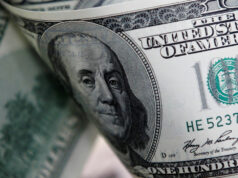DoF: less pressure to put off oil tax hike
By Elijah Joseph C. Tubayan
Reporter
THERE MAY BE less pressure for the government to press on with its stated commitment earlier this week to put off an oil excise tax hike set in January amid signs that Dubai crude price — Asia’s benchmark — could in this final quarter average less than the $80 per barrel (/bbl) trigger price under the law for automatic suspension, the Department of Finance (DoF) hinted in a bulletin on Wednesday.
At the same time, one DoF senior official said in an interview that the situation bears watching as oil prices remain “too volatile,” hence, pressure is still tilted to the upside.
“While Dubai oil price levels for the next six months using Oct. 8 futures prices would have required suspension of the adjustment in excise tax for the next six months, the latest prices levels show otherwise,” read the bulletin — attributed to DoF Undersecretary and Chief Economist Gil S. Beltran — which was e-mailed to reporters, citing data from S&P Global Platts.
“From $82.577/bbl on Oct. 8, Monday, Dubai crude [futures] dropped 2.9% on Oct. 12, Friday to $80.188/bbl. Similarly, Dubai crude oil futures for the next six months dropped below US$80/bbl.”
Oct. 12 futures data show $77.913/bbl for November and $77.482 for December, from above $80/bbl for both months on Oct. 8 and 11, yielding a prospective $78.53/bbl average this quarter.
Dubai crude spot price rose by 43% to $77.02/bbl in September from $53.86/bbl a year ago and by 6.78% from August’s $72.23/bbl.
Spot prices averaged $81.74/bbl in the 12 trading days to Oct. 16, 49% more than the $54.86/bbl in last year’s comparable period. Dubai crude dropped to $79.30/bbl on Oct. 15 and further to $78.80/bbl on Oct. 16 from above-$80/bbl since September’s last three trading days.
Republic Act No. 10963, or the Tax Reform for Acceleration and Inclusion Act (TRAIN) that took effect in January, raised fuel excise taxes by P2.50 per liter this year and is scheduled to add P2/liter and P1.50/liter in 2019 and 2020, respectively, totaling a P6/liter excise tax hike.
Malacañan Palace announced its commitment to suspend the scheduled oil tax hike last Monday in the wake of Oct. 11 futures data showing above-$80/bbl levels this month to December, with prices falling below that trigger starting January. Oct. 8 futures data showed below-$80/bbl starting April. The Finance department explained then that Malacañang made the announcement in advance to douse inflation expectations.
“The announcement was made when the price and the futures market were above $80, so the decision to suspend will be released some point next year. Malacañang will announce it formally,” Assistant Secretary Antonio Joselito G. Lambino II, DoF’s spokesman, said in a telephone interview.
“[Presidential] Spokesperson [Salvador S.] Panelo already made an announcement that the suspension is forthcoming. We will abide by Malacañang’s decision. But the decision was made based on recommendations made by the leadership in the Senate and the… House and a support statement from the economic managers.”
Analysts said this week that the law’s trigger price may not be the only deciding factor in this issue, since the January trigger period is just four months away from the May mid-term elections that, in turn, have a bearing on the 2022 presidential elections.
The DoF bulletin on Wednesday noted that “[u]ncertainties in the global economy arising from the trade war, US President (Donald) Trump imposing sanctions on Iran, and declining Venezuela production scared financial and commodity markets, sending equities and commodity prices gyrating from day to day.”
“This has resulted in volatile crude oil prices,” the department explained.
But Mr. Lambino said that pressure remains on the upside.
“My understanding from experts is that it’s too volatile. We’re also looking at intensification of sanctions by the US against Iran by November. We’re also looking at the actual demand for oil, so that’s volatile,” he said.
“When the announcement was made, the prevailing price was about $80, and that was about a week ago. We’re still looking at the major factors globally when it comes to oil prices.”
SPENDING CUTS
The Finance department estimates suspension of January’s scheduled oil tax hike to cost the government some P41 billion in foregone revenues.
Economic managers are now scrounging for items — except for infrastructure and human capital development — for which expenditures could be suspended.
Also on Wednesday, Budget Secretary Benjamin E. Diokno said that the increase in fuel vouchers for public utility jeepney franchise holders will be put on hold, following Malacañang’s announcement of impending suspension of the scheduled oil tax increase.
The program was intended as a mitigating measure for the public transportation sector affected by the fuel tax hike under TRAIN.
About 179,000 jeepney franchise holders nationwide are entitled to receive P5,000 worth of fuel vouchers this year and P20,515 in 2019.
“The Pantawid Pasada for next year is premised on the P2 adjustment. Now if the P2 adjustment is suspended, then the Pantawid Pasada benefits will be based on 2018,” Mr. Diokno said in a media briefing on Wednesday.
Surging oil and rice prices drove headline inflation to multiyear peaks lately, averaging five percent in the nine months to September against the central bank’s 2-4% target range for full-year 2018.
The government now forecasts full-year inflation to average 4.8-5.2% this year and 3-4% in 2019.



